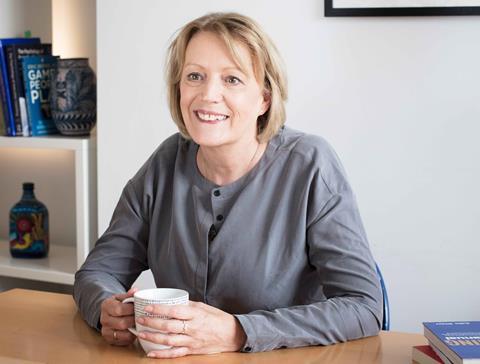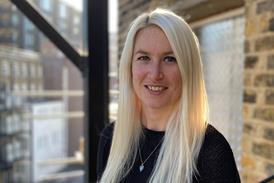To avoid tokenism in the workplace we need to embrace a more profound understanding of what inclusivity means, writes Louise Rodgers

Hot on the heels of last week’s International Women’s Day (IWD) comes MIPIM, and the irony of this juxtaposition won’t be much of a surprise to anyone who has made the trek to Cannes, this, or indeed any, of the previous 30 or so years.
I have definitely earned my MIPIM stripes having attended perhaps as many as a dozen times. The first, I believe, was in 2004. Back then, the lack of diversity in the attendees was really quite shocking.
The British contingent may have had the edge over some other countries but the wall-to-wall grey ‘suits’ and predominantly male, and white, panellists, was still extremely noticeable. As a woman I felt exposed and ever so slightly vulnerable at times, a fact that may surprise some people in my network.
I can attest that a thousand small injustices are committed on a daily basis against women by the most ‘woke’ of men
I am sure some things have changed for the better (for example, pressure has been successfully applied to have more equal representation on panels) but as IWD reminds us, there is still a long way to go.
A quick google search reveals that many UK-based practices chose the day itself to spotlight women from their studio or host IWD events to celebrate female employees. There were also debates around such things as the disparity in pay and position between men and women and even the launch of a new action group – Part W – committed to campaigning against gender discrimination in the built environment.
All this is great, but from my own experience, as someone who has coached many women across the built environment, I can attest that a thousand small injustices are committed on a daily basis against women by the most ‘woke’ of men, often even without them being aware of what they are doing. Most of these go unnoticed, unreported, and unchallenged, and the women simply inwardly shrug their shoulders and move on.
No-one wants any kind of tokenism
I have spoken with women who are secretly furious about being requested to step in at the last minute on a bid team ‘because we need a woman’ or being asked pointed questions about their reproductive intentions. The second example given here is unconscionable, but I believe the first is more common than we may want to think.
Several weeks ago, I posted something about this on Twitter. It prompted a few comments including those to the effect of ‘Is this not a natural consequence of the requirements for diversity?’, and of course it is. My argument however is that it is not about the ‘what’, it is about the ‘how’.
No-one wants any kind of tokenism, but if diversity and inclusion are considered at the outset of putting a bid team together it will result in less women feeling they are only in a room to tick a box, which in my experience can often have a long-term detrimental impact on both their confidence and self-esteem.
But what if what they bring to the project is not immediately obvious?
In the case of Priya Aggarwal-Shah, founder of BAME in Property, who ticked not only one but two boxes and was once told so, her frustration was a direct impetus for the BAME in Property initiative. She has never looked back, but others may find it more difficult to muster this kind of resilience.
The counterargument is that people should be selected for a bid team only if they bring something valuable to it – not because they are a particular gender. As one leader put it, ‘They need to bring something to the project to be on it.’
I couldn’t agree more. But what if what they bring to the project is not immediately obvious?
Sometimes a requirement for diversity means looking over the usual heads to find someone who fits the bill, but how can leaders do this and make it a positive and empowering experience, rather than one where the woman or the person of colour feels a pressure to somehow justify their presence? Here are a few things to think about.
- Do this early on. Involve that person from the get-go rather than as an afterthought. A late invitation to join a team will be seen as what it is. Tokenism.
- When you’re thinking about what that person brings to the team, be curious about the things that may not appear on their CV but may nevertheless benefit the project. I spoke to someone recently who had worked in New Zealand for two years, where the spirituality of place is a critical consideration for any proposed development and the local indigenous communities are the real experts. What an important set of lessons to come home with.
- Give that person a specific role which may relate to where they are in their studies or career. How can being involved in this project benefit them? What do they need to get out of it? Is there something that they need practical experience of that working on this project will deliver?
- Sometimes less senior or experienced members of the team are not the best presenters and need support and encouragement, and practice, to hone this skill. Everyone should have a role at the client pitch, not just the practice leads. Build time into the project preparation to allow for rehearsals and coaching for presentation day.
- Give them space to shine. Celebrating everyone’s involvement and contribution. It sounds obvious, but do you always take time to thank your team when a project win is publicly announced, or does ‘the studio’ get the only credit?
If the aim is to genuinely expand opportunities rather than just tick boxes, then actions can be taken which will improve diversity and inclusivity and we will all benefit. But it needs to be done intentionally, and it takes effort.
Postscript
Louise Rodgers is Building Design’s professional coach. A personal and business coach, she co-created and co-delivers, with Rachel Birchmore, Step Up, a leadership development programme for built environment consultants.
Do you have a question for Louise? If so email louise@eidyia.co.uk. She will use the most interesting in her columns but cannot enter into individual correspondence.
Hear more from Louise and Rachel on their podcast, Coaches on the Couch.
















No comments yet